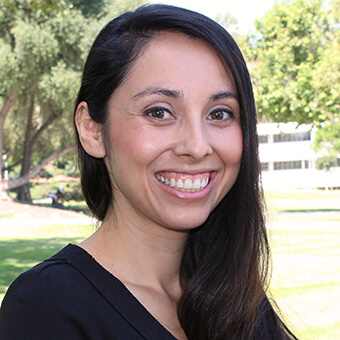- Integrated Planning
Integrated Planning
Integrated planning is a sustainable approach to planning that builds relationships, aligns the organization, and emphasizes preparedness for change.
- Topics
Topics
- Resources
Resources
Featured Formats
Popular Topics
- Events & Programs
Events & Programs
Upcoming Events
- Community
Community
The SCUP community opens a whole world of integrated planning resources, connections, and expertise.
- Integrated Planning
Integrated Planning
Integrated planning is a sustainable approach to planning that builds relationships, aligns the organization, and emphasizes preparedness for change.
- Topics
Topics
- Resources
Resources
Featured Formats
Popular Topics
- Events & Programs
Events & Programs
Upcoming Events
- Community
Community
The SCUP community opens a whole world of integrated planning resources, connections, and expertise.
 Blog Post
Blog PostPlanning for Parenting Student Success
A Cross-Functional University Initiative Provides Centralized Delivery of Support ServicesPublished September 24, 2025By Apryl Motley, CAE, SASMPlanning Types: Student Affairs PlanningTags: Attracting and Retaining Underrepresented Students, Higher Ed in Society, Higher Ed Trends, Student Support Services
Institutions referenced in this resource:
California State Polytechnic University-PomonaAn interview with Brianne Dávila, PhD, associate dean for academic programs and student success and professor of sociology, California State Polytechnic University, Pomona, and Giselle Navarro-Cruz, PhD, associate professor, early childhood studies, California State Polytechnic University, Pomona.


Brianne Dávila Giselle Navarro-Cruz Recognizing the dedication and perseverance it takes to be both a parent and a student, Cal Poly Pomona (CPP) established the Parenting Student Support Network. Its primary purpose is to support parenting students on their journey to obtaining higher education by sharing resources and building community. The network serves as an “umbrella” under which staff coordinate several initiatives and resources for parenting students, including The Bronco Family Space in the university library, designed for students, faculty, and staff who need to use library services while caring for a younger family member. Another valuable resource is CPP’s Children’s Center, which provides income-based preschool services for campus parenting students as well as faculty, staff, and alumni.
The fall 2025 edition of Trends in Higher Education includes a piece about the challenges parents experience in securing reliable, affordable childcare. Given their work with CPP’s Parenting Student Support Network, we turned to Brianne Dávila, associate dean for academic programs and student success and a professor of sociology, and Giselle Navarro-Cruz, an associate professor of early childhood studies, to gain additional insight into how cross-functional planning to support parenting students’ success is quickly becoming commonplace in higher education.
Dávila and Navarro-Cruz have worked with the network since its inception and researched parenting students. They graciously accepted our invitation to address some questions about CPP’s cross-functional effort to provide centralized delivery of support services for parenting students.
What served as the catalyst for establishing CPP’s Parenting Student Support Network?
Dávila and Navarro-Cruz: Several institutional agents were doing their part across campus to support student parents, but many of us were working in our separate programs, departments, or divisions. At the time, Ishia Orozco-Barajas, a campus staff member, was pursuing her master’s degree and writing a thesis on the experiences of student parents in higher education.
While gathering information about existing resources on campus, she recognized the need to bring the groups together and coordinate our approach. This was the catalyst for forming our Parenting Student Support Network.
Around the same time, we, along with two librarians, developed a grant proposal to establish a family space in the university library that the Office of Student Success would support. Establishing that space was an early win for the group. On our campus, we benefited from a champion willing to take the lead on coordinating our efforts and funding to develop a designated space for student parents. That created momentum for our program.
What challenges and opportunities were there in working with student parents?
Dávila and Navarro-Cruz: An initial challenge was the ability to collect data and identify student parents, as no mechanism was in place for students to disclose the information in a standard way. The passage of California law AB2881, which mandated priority registration for student parents, resulted in the university’s development of a verification form.
Working with student parents has been inspirational. We have found that, despite having limited time on campus due to the demands of childcare, academics, and, often, employment, student parents are incredibly resilient and deeply motivated to support one another. Their dedication is evident in the creation of the Broncos Parenting Club, a space they built to advocate for their needs and foster community as they navigate higher education while raising children.
The club organizes meaningful events, including the annual Parenting Student Graduation, where graduates often walk across the stage with their children, celebrating both academic achievement and the journey of parenthood.
Additionally, student parents are key contributors to the Parenting Student Support Network, helping to shape resources and amplify the voices of parenting students across campus.
How have you engaged other departments at CPP in planning programs and services for student parents?
Dávila and Navarro-Cruz: There are currently 20-plus people participating in the Parenting Student Support Network from departments across academic and student affairs. The team developed student parent ally training, which is informed by faculty research and facilitated by student affairs practitioners. Student parents contributed to the curriculum and regularly volunteer to serve on a panel as part of the training. Hearing directly from them about how faculty and staff can be more supportive is incredibly impactful.
In what other ways have you included the student parents in shaping the network?
Dávila and Navarro-Cruz: Student parent voices have also played a vital role in shaping the Connect and Play events held at the Bronco Family Space in the Cal Poly Pomona library. Those gatherings were designed to bring together parenting Broncos, offering a space to connect, share experiences, and build community. Each event features a read-aloud session, a regulating activity to support emotional well-being, and a creative art activity for children and parents to enjoy. The Bronco Parenting Club executive board has been instrumental in guiding monthly programming, ensuring that the events reflect the interests and needs of parenting students.
Given the challenges parents have obtaining and keeping childcare, do you think higher education institutions may be rethinking how they engage with student parents?
Dávila and Navarro-Cruz: Absolutely. We are pleased to see visibility and support for student parents in higher education increasing in recent years. The California State University launched a system-wide task force this summer as a part of the Pregnant and Parenting Students Initiative. Dedicated staffing to support student parents is another clear indication of institutional support, and childcare centers on campus and/or staff members who can direct student parents to childcare or other resources are especially valuable.
What is your most important advice for higher education leaders considering initiatives like the Parenting Student Support Network or other efforts to expand services for student parents?
Dávila and Navarro-Cruz: Prioritize cross-division collaboration and holistic support that addresses academics, well-being, and the intersecting identities of students. Centering the needs of student parents through family-friendly policies and intentional advocacy fosters validation, belonging, and degree attainment.
- Topics
- Topics


